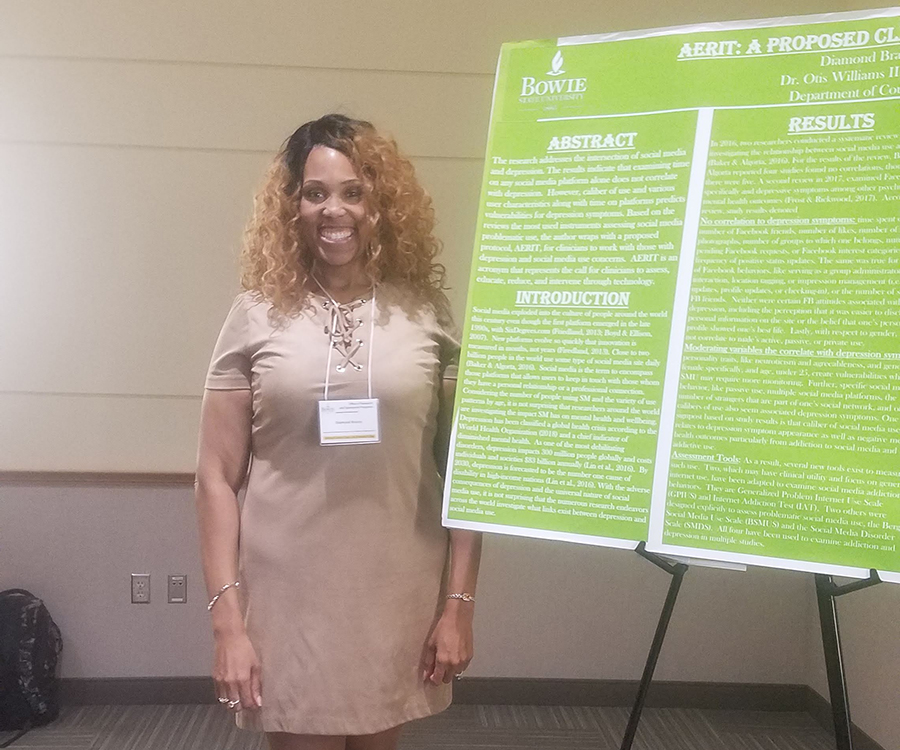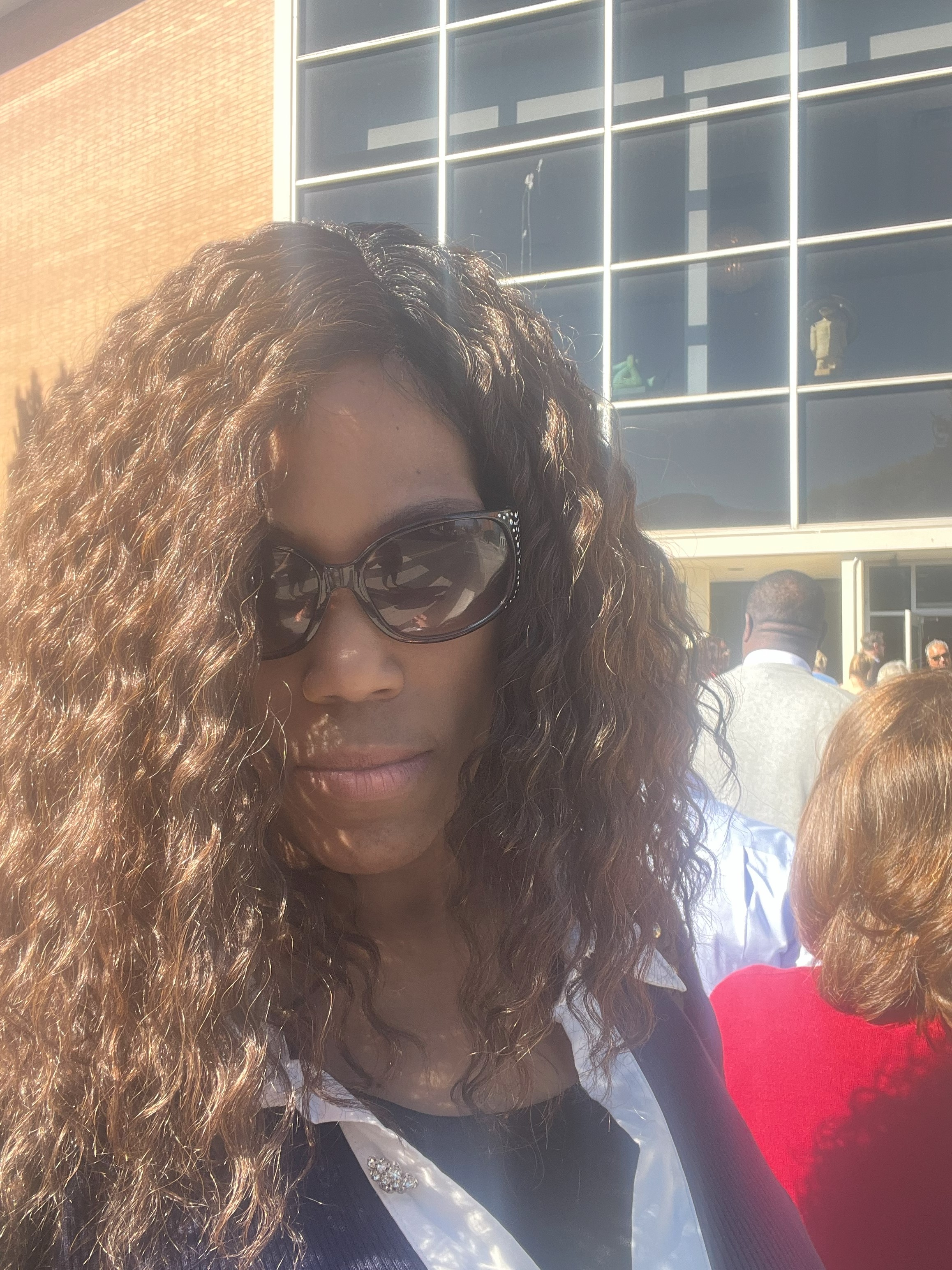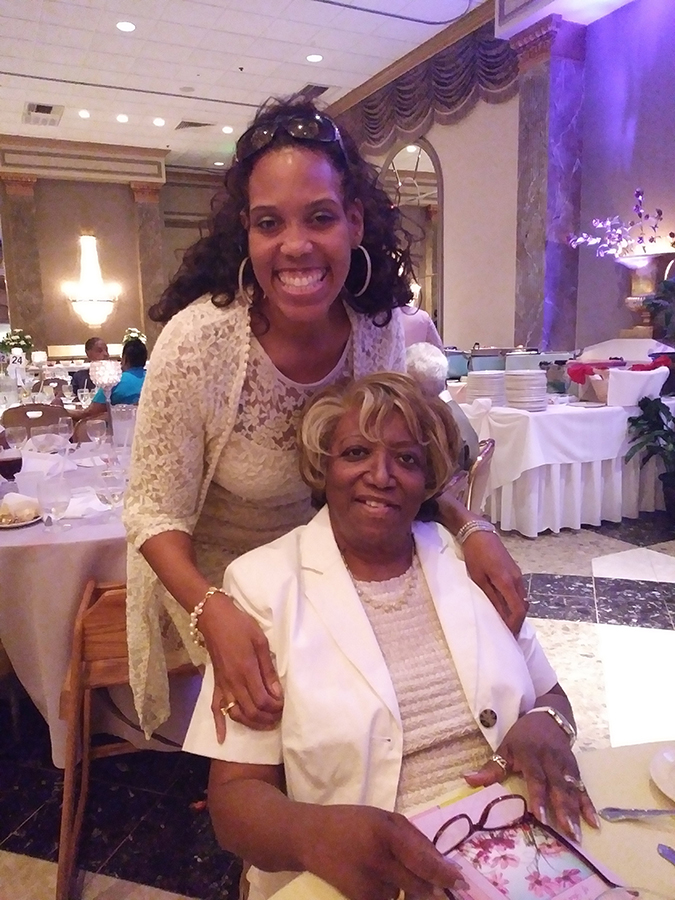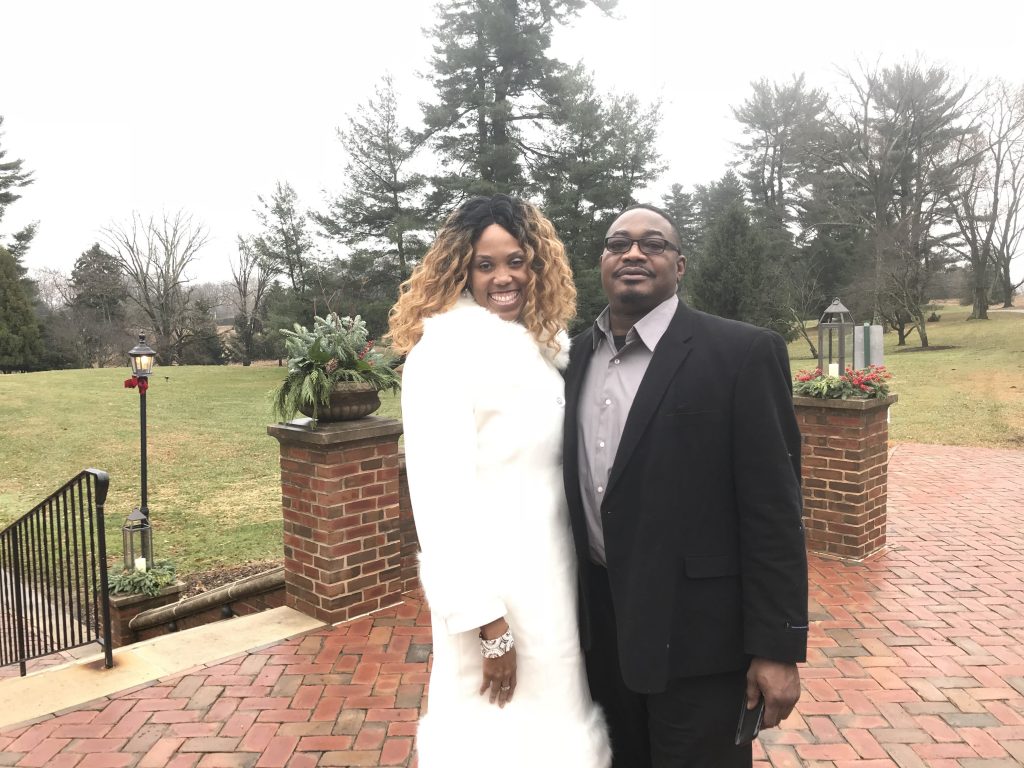Diamond Bracey has lots of frequent-flier miles and a long to-do list. The native Washingtonian grew up in Maryland before coming to NAU to enroll in the combined counseling and school psychology Ph.D. program in the College of Education. In addition to finishing her dissertation, caring for her family and doing clinical hours, she is president of the Graduate Student Government (GSG). Learn more about her work decreasing health disparities for patients of color, how her mother’s tenacity set Bracey up to chase her dreams and her favorite way to spend a (rare) day off.
What brought you to NAU?
I am fortunate enough to be in a rare program. I am in the combined counseling and school psychology Ph.D. program—one of the few in the entire country. Even when schools offer combined programs, they often require students to focus on one of the tracks. At NAU, we are fully trained in both.

Tell me about your research.
I have always been interested in the intersection of technology and psychology, particularly how technology can be used to close health disparities for patients of color. While in my master’s program, I developed an idea that serves as the foundation of my doctoral research agenda. This project won a universitywide entrepreneurial award. The key component is distilling symptoms of psychological disorders into language accessible to the general public, particularly people of color. As such, using language typical within the community, website visitors would gain a preliminary, informal on-screen report that would encourage them to connect with mental health professionals of color with expertise associated with their self-identified symptoms.
The difference between this site and other curated psychological sites would be the free, personalized recommendations and symptom ratings in an easy-to-understand code, which I named the Color Scale of HealthSM. The Color Scale of Health is a continuum from healthy thoughts and behaviors to unhealthy. My desire is that this website will increase health literacy, reduce the stigma regarding mental health symptoms and enhance patient-provider communication. Ultimately, I hope the site will be a conduit through which people of color would more willingly engage a therapist. My dissertation involves developing and testing statements to ensure they encapsulate symptoms in the ways website visitors would describe them but which also align with empirically sound, evidence-based clinical definitions.
How did you get into this work?

Personal life events spurred my pursuit of a Ph.D., and my enrollment in a combined program of counseling psychology and school psychology was deliberate. The deaths of two close family members, unexpectedly and within two months of each other, were significant losses to me. The effect on my 12-year-old niece was heart-wrenching. It was a school psychologist who intervened when teachers were trying to label her. Then another close family member had a significant, life-altering diagnosis. Those experiences spurred me to find a program where I could gain experience and training to intervene in situations like the ones my family went through so patients and their families know it can get better and they have the strength within to achieve that better.
Why did you decide to get involved with GSG?
My time at NAU started during the height of the pandemic, and one way to build community is by serving others. Having worked in student government at my previous institution, GSG was a natural fit. Since joining GSG, I first served as the director of special events, then last year as one of the College of Education representatives and then as the interim vice president of external affairs and now as president. I hope to continue to increase the visibility of graduate students and the differences and similarities between our needs and those of undergraduate students.

Tell me about a significant childhood memory and how it has impacted your life today.
No childhood memories really stand out, but I can share that my mother was a full-time wife and mother who also worked full-time outside the home and went to school and earned her college degree and master’s degree while doing an amazing job in all facets. She dealt with sexism and racism and fought continuously to receive equitable treatment at work. (Sadly, it remained an uphill battle her entire career.) Even as she fought for it for herself, she also made sure that others learned from her fight and benefited from it. Her stalwart determination and grace inspired me and ensured that I learned that I can accomplish whatever I set my mind to, even when the obstacles and giants are big and scary! For that reason, I continue to work toward this Ph.D. regardless of the obstacles before me, balancing geographical distance, maintaining a full-time course load in a combined program, volunteering in the community, working as a graduate assistant, serving within the university and stepping up to serve as a primary caregiver in my family.
What did you want to be when you grew up?
Welp, as one who would scare away small dogs and children if I tried to sing and was blessed with little hand-eye coordination, I never dreamed of being a singer or a superstar athlete. I wanted to be an actress and fashion designer. As a psychologist-to-be, I stand strong in the belief that it’s not too late and may still happen in a distant future 😀
What have you been most proud of recently?

In GSG, we continue to support graduate students in their professional development by providing travel stipends to present their research locally, regionally, nationally and internationally.
Individually:
- An accepted entry in The Encyclopedia of Mental Health Trainings (slated for publication at the end of the year, I think)
- Completion of my preliminary defense summary for my dissertation
- Obtaining enough clinical hours to apply for my independent license as a professional counselor
- Maintaining my sanity after flying from Flagstaff to Washington, D.C., weekly for one year
- Reuniting with my family so I can continue my studies while also being the primary caregiver for my family with health challenges
What is your favorite way to spend a day off?
Before graduate school, it was traveling, exploring new cities, hanging out with friends and family. Now, it’s SLEEPING.
Know someone who would make a good profile in Humans of NAU? Email your suggestions to NAUComm@nau.edu.



